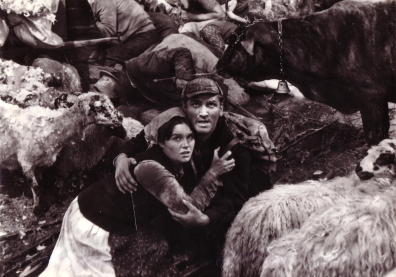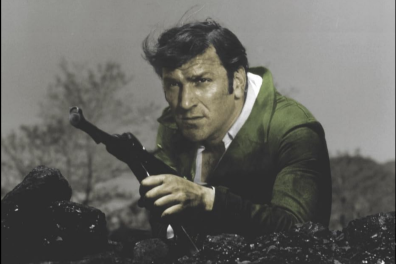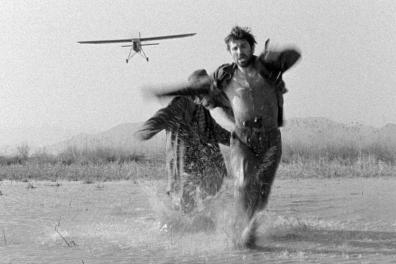Yugoslav partisans: historical figures and film heroes (2nd edition)
As part of the cycle of screenings and debates: "(Counter-) cinematographic memories of conflicts in medieval Europe".

Screening of three films presented by Naïma Berkane (Eur'ORBEM)
In 2023, a first session of three films centered on Partisan figures addressed Yugoslav cinema's relationship to history, between mystification, deviation and critique. It took us through territories (Herzegovina, central Serbia and a metaphorical Croatian island), periods (the War of National Liberation, its immediate aftermath, and times of peace and "exhaustion of revolutionary morality" - as analyzed by Nebojša Jovanović,), and cinematic styles aroused by the Partisan theme (mainstream, auteurist naturalism and formalism).
The session on May 3, 2024 will be devoted to superstar Bata Živojinović with three films produced between 1962 and 1972 that reveal some of the diversity of Partisan cinema and its stylistic and ideological evolutions. The choral film Kozara is an edifying example of melodramatic "mature classical cinema" dedicated to one of the deadliest battles of the Second World War on Yugoslav territory. With the cult spy film, Walter Defends Sarajevo, Bata is a hero among heroes in the organized resistance during the occupation of the city. It's alone that we find him in the intimate auteur film, Trois, which takes us through the war from within.


A number of guests will discuss the actor's career, his Partisan roles and the representative function he took on in socialist Yugoslavia through his political and cinematic changes. Also discussed will be the work of director Aleksandar Petrović and the place revolutionary themes held in it, both politically and aesthetically:
- Irena Bilić, Aleksandar Petrović's directorial assistant, founder and artistic director of the Europe around Europe
- Mina Radović, PhD student and curator, programmer of "Black Wave to White Ray: Yugoslav Film of the 1960s" at MoMA (New York, September 7-21, 2023)
- Vlastimir Sudar, senior lecturer at Kingston University and author of The Life and Work of Aleksandar Petrović, A Portrait of the Artist as a Political Dissident (Intellect Books, 2013)
Program
- 2pm - Kozara, by Veljko Bulajić, 1962, Bosna film, VO with English subtitles, 2h04
- 4:30pm - Walter defends Sarajevo (Valter brani Sarajevo), by Hajrudin Krvavac, 1972, Bosna film, OV with English subtitles, 2h13 - Followed by a discussion with Mina Radović
- 7:30pm - Three (Tri), by Aleksandar Petrović, 1965, Avala film, VO with French subtitles, 1h20 - Followed by a discussion with Irena Bilić and Vlastimir Sudar
In partnership with Eur'ORBEM (Sorbonne University), Filmski Centar Sarajevo and Delta film


